VIRTUAL EVENT: Doctoral education and its purposes: research training for a changing world
09 June 2021, 10:00 am–2:00 pm
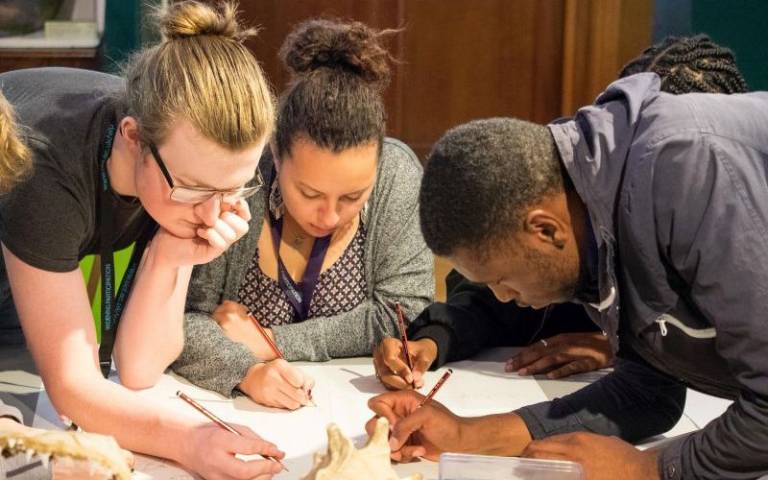
This joint Centre for Higher Education Studies (CHES) and Centre for Doctoral Education (CDE) symposium will gather academics, policy makers and practitioners to discuss the purposes of doctoral education in contemporary societies.
This event is free.
Event Information
Open to
- All
Availability
- Yes
Cost
- Free
Organiser
-
Centre for Higher Education Studies (CHES)
Doctoral education studies have focused on learning processes, on supervisory relationships, on quality, access and employability just to mention a few themes.
The rationales for such debates, while partly overlapping, are quite different: they point to concerns about academic excellence, instrumental views, student experience and, more recently, access.
Differences in national higher education systems, universities and in disciplines have also added complexity to these conversations.
This joint Centre for Higher Education Studies and Centre for Doctoral Education symposium aims to take stock from the ongoing discussions and will attempt to connect these themes.
Programme
- 10am: The role of institutional structures in doctoral education - Professor David Bogle, UCL
This presentation will discuss the variety of institutional structures in which doctoral education takes place. These structures can go from the traditional master-apprentice model to large multi-disciplinary doctoral schools.
David will outline some principles and show by example drawing from UCL and higher education institutions in the League of European Research Universities (LERU).
Finally, he will address some of the challenges that institutional structures pose in enhancing doctoral education.
- 10:30am: Employability of doctoral students, a view from East Asia - Dr Hugo Horta, The University of Hong Kong (HKU)
In this presentation, Hugo will assess the employability of doctoral students from the perspective of students. He will draw from students’ preferences and decision-making, rather than from a macro perspective of the labour market for PhDs.
The presentation is based on insights from published and ongoing research, mostly focused on East Asian countries, and combining quantitative and qualitative methods.
- 11am: Debating excellence in doctoral education - Dr Tatiana Fumasoli, UCL Institute of Education
Doctoral education is almost exclusively carried out within universities. As such, it constitutes an important strategic function for higher education institutions, for instance, in training the next generations of academics, in contributing to research productivity and research environment, as well as in fostering the overall (research) reputation of an institution.
This presentation will draw on an extensive literature review on doctoral education and will outline the existing scholarship on doctoral education and researcher development pointing to ongoing and upcoming challenges and blind spots in our knowledge base.
- 12pm: Thesis supervision: the educational value of postdocs in supporting research writing - Dr Kay Guccione, Glasgow Caledonian University
Barriers to making progress with thesis writing can have a range of origins and frequently include attitudinal, emotional, and motivational causes.
Doctoral writers who are able share their emotional and motivational concerns about writing with others are more readily able to move through and beyond these barriers. One-to-one coaching activities can provide such a forum for reflection and an open discussion of difficulties, and a skilled thesis mentor can create this opportunity.
Early career researchers (post-doctoral research staff) play a key, if frequently unrecognised role in the support and development of doctoral students and with the right training, can deliver effective thesis mentoring.
Additionally, post-doctoral researchers themselves view any experience of supervision gained during the post-doctoral period, as core to progressing a successful academic career.
There have been recent calls in the sector for doctoral supervisor training to be ‘writing-centred’, and simultaneously for postdoc development to be experienced-based. A thesis mentoring programme provides an innovative educational framing for delivery of both of these objectives.
This presentation focuses on how doctoral writers are supported to make progress, using outcome data from a thesis mentoring programme to understand the educational value postdocs provide in support of thesis completion.
- 12:30pm: Access to doctoral education in UK: an overview - Professor Paul Wakeling, University of York
This short talk will present an overview of patterns of access to doctoral study in the UK and the issues these raise for policy and practice.
As well as considering major dimensions of inequality (race/ethnicity, gender, social class), structuring factors like discipline and institution will be reviewed. Implications for doctoral policy, admissions practice and data monitoring will be discussed.
- 1pm: Future of researcher development - Katie Wheat, VITAE
The concept of researcher development and the roles of researcher developers have evolved significantly since the publication of the 2002 SET for Success review led by the late Professor Sir Gareth Roberts.
This presentation will anchor researcher development within the evolution of the doctorate and graduate education. It will also use the recent shifts in working environments, priorities and policies, catalysed by the pandemic, to explore the place of researcher development now and in the future.
- 1:30pm: Panel discussion
Chaired by Dr Amy Hong and Kasia Bronk, UCL Research Experience, Organisational Development.
CHES research events
CHES research events provide a forum for academic debate, policy analysis and practice insight in higher education, supporting the exchange of theories, methods and data across social sciences.
Links
- Watch the webinar on MediaCentral
- Download the presentations (zip)
- CHES research events
- Centre for Higher Education Studies
- Centre for Doctoral Education
- Department of Education, Practice and Society
Image: Kirsten Holst for UCL Digital Media
About the Speakers
Professor David Bogle
Pro-Vice-Provost (Graduate Dean) and Professor of Chemical Engineering at UCL Doctoral School

David's role is to lead the strategy for early career researcher development (doctoral and postdoctoral) at UCL.
He is also Chair of the League of European Research Universities (LERU) Doctoral Studies Policy Group and member of several advisory boards for early career researcher development.
More about Professor David BogleDr Hugo Horta
Associate Professor at the Faculty of Education, University of Hong Kong (HKU)
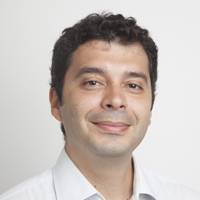
Hugo's main topics of interest refer to academic research processes and outcomes (including research agendas and research productivity), academic mobility and knowledge dynamics, and career trajectories of PhD holders.
He is also currently coordinating editor of the Higher Education journal.
More about Dr Hugo HortaDr Tatiana Fumasoli
Associate Professor in Higher Education Studies and Director of CHES at the UCL Institute of Education

Tatiana expertise includes higher education management, strategy and policy in international perspective. She has coordinated several international projects focusing on global governance, external engagement and the academic profession.
Her research interests lie at the intersection of management studies, organisation theory and sociology of professions and expertise. Tatiana has extensively published in the main journals in the field and is editor of Higher Education Quarterly (Wiley).
More about Dr Tatiana FumasoliDr Kay Guccione
Senior Lecturer at Glasgow Caledonian University

Kay specialises in supervision, mentoring and community building for academic and researcher development.
Her research investigates the doctoral student experience and research supervisory practice. She has published on mentoring, thesis writing, the hidden curriculum of the doctorate, and on graduates’ perceptions of the value of engaging with doctoral study.
More about Dr Kay GuccioneProfessor Paul Wakeling
Professor and Head of the Department of Education at the University of York
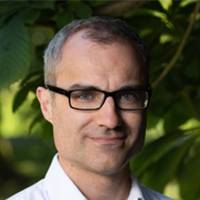
Paul's research concerns inequalities in access to higher education, especially at postgraduate level, and its connection with wider inequalities in society.He has published widely on this topic, and has conducted a range of funded research.
He is currently part of a team conducting the Review of the UK Social Sciences PhD for ESRC and working on projects on postgraduate access for the Sutton Trust and BBSRC.
More about Professor Paul WakelingDr Katie Wheat
Head of Engagement and Policy at Vitae
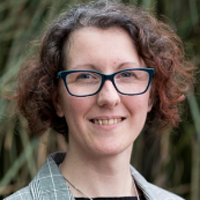
Through her leadership of Vitae membership and Vitae Connections Week 2021, as well as work to support the Researcher Development Concordat, Katie engages with stakeholders across the research ecosystem to advocate for the importance of the career and professional development of researchers.
Her particular areas of interest include demonstrating the impact of researcher development and addressing pervasive barriers to a healthy research culture, such as equality of opportunity, precarious employment and wellbeing.
More about Dr Katie WheatDr Richard Freeman
Associate Professor in Doctoral Education and Interim Head of the Centre for Doctoral Education at UCL Institute of Education

Richard has worked at UCL Institute of Education since 2006. He is also the Deputy Director of the UCL, Bloomsbury and East London (UBEL) ESRC Doctoral Training Partnership.
He is a co-author with William Locke and Anthea Rose on the 2018 ESRC-commissioned study of Early career social science researchers: experiences and support needs.
More about Dr Richard FreemanDr Amy Hong
Head of the UCL Research Experience at Organisational Development, UCL

Working closely with the Doctoral School, faculties and external stakeholders, Amy leads the strategic direction to foster a supportive research culture with an oversight for developmental interventions and initiatives. Amy has 10 years’ experience in the higher education sector.
Kasia Bronk
Academic and Research Development Manager at UCL
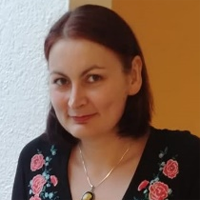
After a difficult decision to switch from academic focus to professional development, Kasia worked for three years as a trainer, delivering personal and professional development courses for postgraduate researchers.
She now works in organisational development, leading the strategy for Researcher Development Programmes, and looking for new initiatives to raise excellence in researcher development at UCL.
 Close
Close

